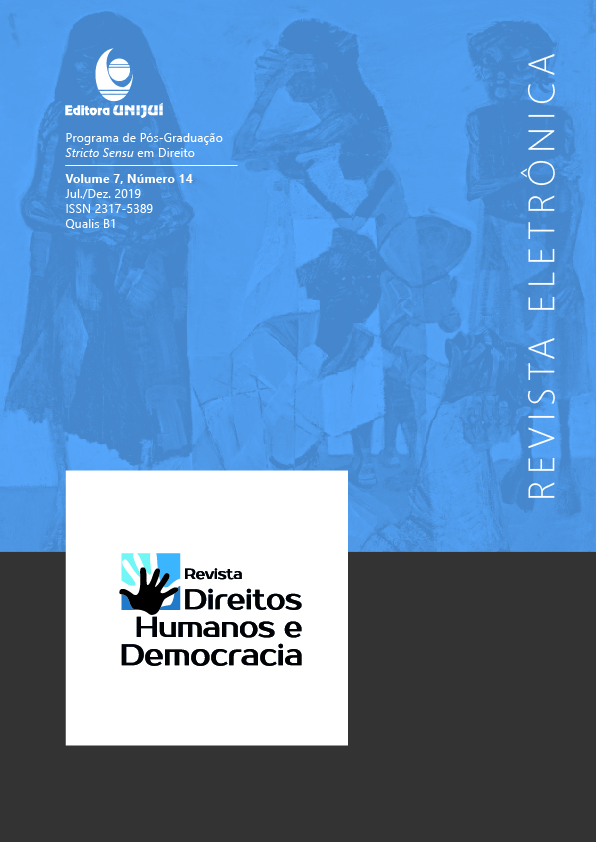A ADPF 153 E O CASO HERZOG: UMA JUSTIÇA DE TRANSIÇÃO À BRASILEIRA
DOI:
https://doi.org/10.21527/2317-5389.2019.14.128-150Keywords:
Case of Herzog, Brazilian Federal Supreme Court, International Law of Human Rights, Inter-American Court of Human Rights, Transitional Justice.Abstract
Assuming the idea that the Brazilian Federal Supreme Court would be omitting its function of comply with conventionality control, which would create embarrassment to the brazilian transitional justice, this article aims to investigate the Claim of Breach of Fundamental Precept 153 and the Case of Herzog, a recent decision of the Inter-American Court of Human Rights. Therefore, it resorts the doctrine of conventionality control and the perspective of the International Law of Human Rights in the respective cases. The main methodology was based on legal-purpose study, qualitative approach and bibliographic research. The results showed that the Brazilian Federal Supreme Court ignores the international debate on the internationalization of domestic law, confirming the hypothesis.
Downloads
Published
How to Cite
Issue
Section
License
By publishing in the Revista Direitos Humanos e Democracia, authors agree to the following terms:
Articles are licensed under the Creative Commons Atribuição 4.0 Internacional (CC BY 4.0), which allows:
Share — copy and redistribute the material in any medium or format;
Adapt — remix, transform, and build upon the material for any purpose, including commercial use.
These permissions are irrevocable, provided the following terms are respected:
Attribution — authors must be properly credited, with a link to the license and indication of any modifications made;
No additional restrictions — no legal or technological measures may be applied that restrict the use permitted by the license.
Notices:
The license does not apply to elements in the public domain or covered by legal exceptions.
The license does not grant all rights required for specific uses (e.g., image rights, privacy, or moral rights).
The journal is not responsible for opinions expressed in the articles, which remain the sole responsibility of the authors. The Editor, with the support of the Editorial Committee, reserves the right to suggest or request modifications when necessary.
Only original scientific articles presenting research results of interest, not previously published or simultaneously submitted to another journal with the same purpose, will be accepted.
References to trademarks or specific products are intended solely for identification purposes and do not imply any promotional endorsement by the authors or the journal.
License Agreement: Authors retain copyright over their articles and grant the Revista Direitos Humanos e Democracia the right of first publication.













